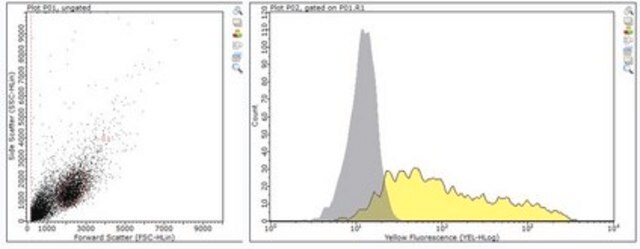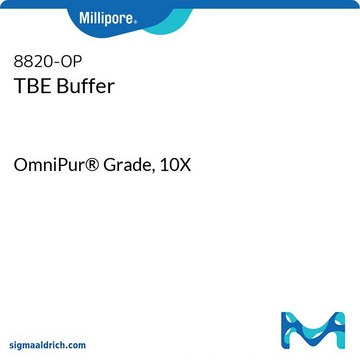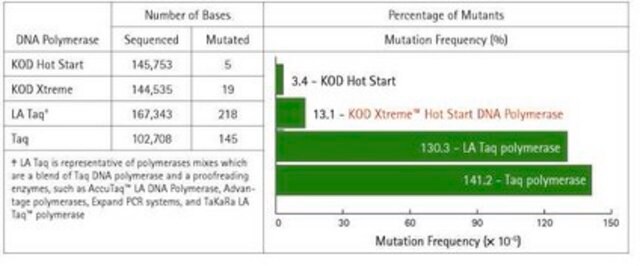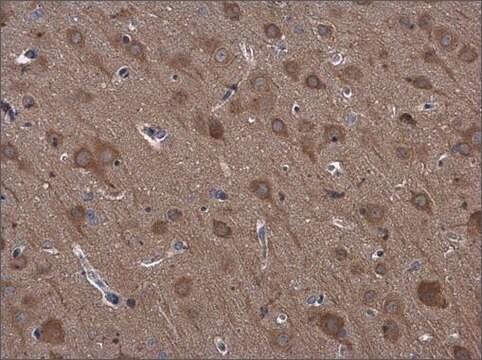MABF1971M
Anti-NKR-P1B (CD161b) Antibody, clone Stok27
clone Stok27, from rat
Synonym(e):
Killer cell lectin-like receptor subfamily B member 1B allele B, CD161 antigen-like family member B, Immunoreceptor NKR-P1C, Natural killer cell surface protein NKR-P1B allele WAG/PVG/BS, Natural killer lymphocyte receptor P1B, CD161b
About This Item
Empfohlene Produkte
Biologische Quelle
rat
Qualitätsniveau
Antikörperform
purified antibody
Antikörper-Produkttyp
primary antibodies
Klon
Stok27, monoclonal
Speziesreaktivität
rat
Verpackung
antibody small pack of 25 μL
Methode(n)
flow cytometry: suitable
immunoprecipitation (IP): suitable
Isotyp
IgG2aκ
NCBI-Hinterlegungsnummer
UniProt-Hinterlegungsnummer
Posttranslationale Modifikation Target
unmodified
Angaben zum Gen
rat ... Klrb1C(683758)
Allgemeine Beschreibung
Spezifität
Immunogen
Anwendung
Flow Cytometry Analysis: A representative lot detected NKR-P1B (CD161b) in Flow Cytometry applications (Kveberg, L., et. al. (2006). J Immunol. 176(7):4133-40; Smelt, M.J., et. al. (2014). Cell Transplant. 23(11):1381-94).
Qualität
Flow Cytometry Analysis: 1 µg of this antibody detected NKR-P1B (CD161b) in Rnk16 (Rat NK) cells stably transfected with Stok27 (NKR-1B) antigen.
Zielbeschreibung
Physikalische Form
Sonstige Hinweise
Sie haben nicht das passende Produkt gefunden?
Probieren Sie unser Produkt-Auswahlhilfe. aus.
Lagerklassenschlüssel
12 - Non Combustible Liquids
WGK
WGK 1
Flammpunkt (°F)
does not flash
Flammpunkt (°C)
does not flash
Analysenzertifikate (COA)
Suchen Sie nach Analysenzertifikate (COA), indem Sie die Lot-/Chargennummer des Produkts eingeben. Lot- und Chargennummern sind auf dem Produktetikett hinter den Wörtern ‘Lot’ oder ‘Batch’ (Lot oder Charge) zu finden.
Besitzen Sie dieses Produkt bereits?
In der Dokumentenbibliothek finden Sie die Dokumentation zu den Produkten, die Sie kürzlich erworben haben.
Unser Team von Wissenschaftlern verfügt über Erfahrung in allen Forschungsbereichen einschließlich Life Science, Materialwissenschaften, chemischer Synthese, Chromatographie, Analytik und vielen mehr..
Setzen Sie sich mit dem technischen Dienst in Verbindung.








